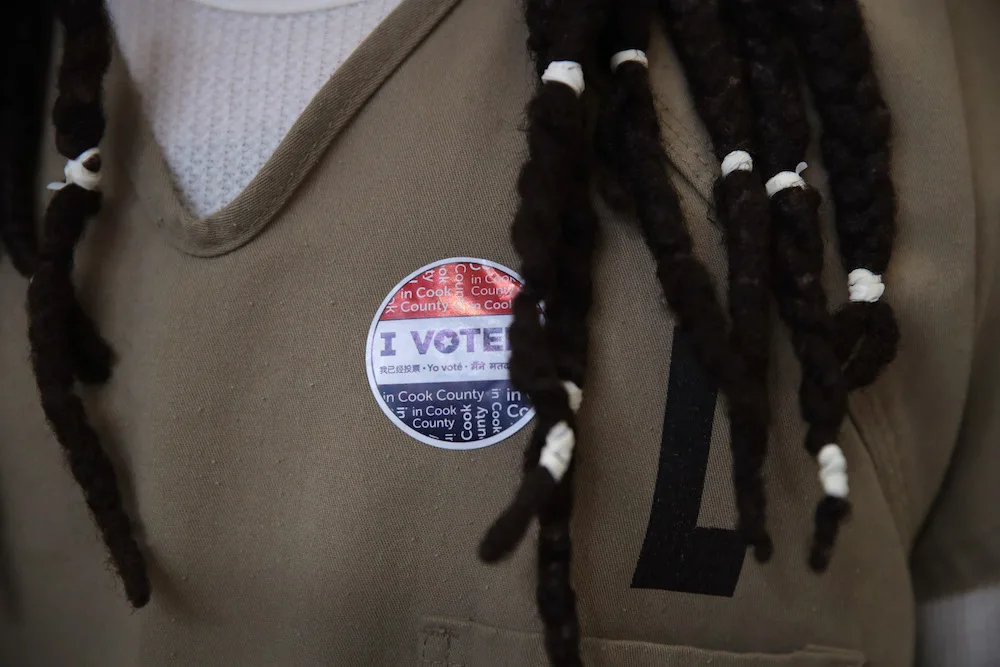
Voting from jail can be a challenging, costly, and sometimes impossible undertaking. A brief published by the Legal Defense Fund (LDF)’s Thurgood Marshall Institute, “Democracy Detained: Fulfilling the Promise of the Right to Vote from Jail,” chronicles many of the barriers to voting while detained. It identifies widespread obstacles for jailed voters related to voter information, voter registration, mail-in ballots, ballot curing, and access to voter outreach teams.
Many jailed voters are not provided with complete or accurate information about their right to vote from jail and how to do so, according to the LDF brief. Sometimes, they’re provided no information at all. Voting-related flyers posted in jail facilities, if they exist, may not be updated or accurate. Even official documents, such as voter registration forms, sometimes contain incorrect or incomplete information about whether someone is eligible to vote. Moreover, when election officials, jail officials, and voter registration forms do not sufficiently explain state disenfranchisement policies — which vary from state to state and can mean that individuals convicted of some crimes are denied the right to vote — jailed individuals may be misled about their voting eligibility, according to a report by the American Civil Liberties Union. As a result, even individuals who have never been convicted of a crime in the past may be dissuaded from trying to exercise the right to vote due to confusion about whether they are eligible to cast a ballot while detained. Furthermore, without a regular or reliable internet connection, which is the case for the majority of detained people, according to the Washington Post, accessing information about how to vote from jail can be impossible.
Also, jail staff may lack extensive training about the voting rights of individuals detained in their facilities, the LDF brief found, or have no training at all. Jail administrators, the point of contact for detained individuals, may be unequipped to answer questions about voting eligibility and confused about their role in facilitating voting from jail.

